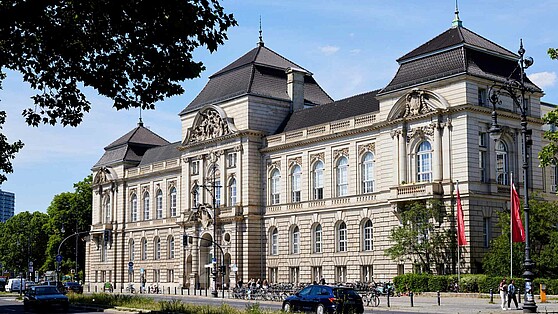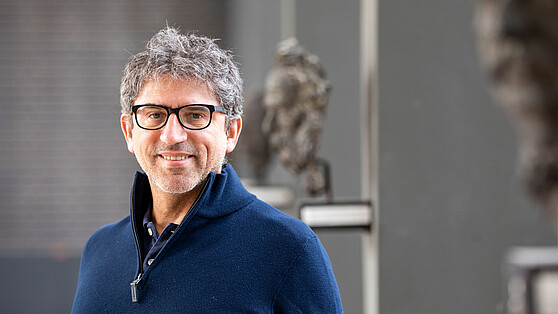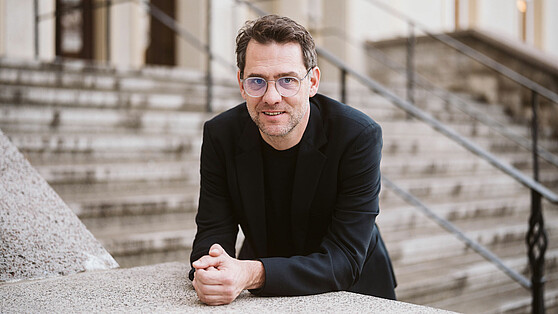-

© SCC Events/Norbert Wilhelmi
20.05.2022“Major Events Affect Life in the City on Different Levels”
The “Smart City Event Incubator” (SCEI) of the VICTORIA | International University of Applied Sciences in Berlin promotes business ideas with a focus on the development of digital services for events that have a lasting effect on the mobility behaviour and social participation in cities. The program includes a monthly grant, co-working spaces, mentoring, coaching and workshops.
With this project, the university is not only defining more precisely its profile as an “entrepreneurial university”, but is also adding research – and makes innovative approaches to knowledge transfer visible. Brain City Ambassador Prof. Dr. Gabriele Mielke, Vice President of the VICTORIA | International University of Applied Sciences and also Program Director of the Smart City Event Incubator, tells us more about the SCEI and the impact of large-scale events on the living environment in cities.
Professor Dr. Mielke, why was the SCEI created?
The Smart City Event Incubator (SCEI) was created primarily to support founders with a business idea for the Smart City and also the event industry in implementing their business idea. Since the VICTORIA | International University of Applied Sciences focuses on event, trade fair and congress management in its Bachelor’s degree program in Business Administration, and also addresses the topics of sustainable business and entrepreneurship innovation, our students also benefit from the SCEI project. They can visit the public events of the SCEI and be inspired by the wealth of experience of the speakers. Innovative study formats improve the quality of teaching and research at a modern university. In addition, knowledge transfer and networking are becoming increasingly important. The SCEI stands for Entrepreneurship & Innovation at VICTORIA and combines the fields of research, teaching and knowledge transfer in a unique way. Our central goal is therefore to use the SCEI to make excellent, internationally visible basic and applied research visible, to develop start-up and innovative skills and to increase sustainably the innovative and future viability of both established companies and new start-ups in Berlin.
Up to 28 applicants are funded by the program. What can they expect?
The applicants receive a monthly grant of 1,500 Euro for six months, one-on-one mentoring and coaching and workshops on start-up topics. We also offer them a spatial and technical infrastructure. The VICTORIA campus was specially renovated to provide the scholarship holders with a modern co-working space. In addition to providing skills, the incubator also serves as a networking opportunity, which is extremely important for young companies. We arrange contacts with sponsors, investors, industry associations, companies, customers, future employees and the scientific community.
The SCEI is the only start-up program in Europe that combines the event industry and the topic of smart urban development in its content. To what extent does the VICTORIA | International University use this interface in research and teaching?
Research and teaching at VICTORIA are characterised by a specific application orientation. Our focus on application even goes beyond imparting practical knowledge in teaching. Instead, there are feedback loops between research, teaching and the partner companies of the university. This means that knowledge not only circulates between research and teaching, but also flows into the company and then back into research and teaching. In this way, we want to gain new insight for entrepreneurial practice, taking into account scientific reflection, and therefore explicitly promote innovations and companies. In terms of content, research and teaching on the event industry and sustainability strategies are already represented at VICTORIA. However, the incubator connects both areas in a unique way. We expect this to give us new impetus for both research and teaching.
Will Berlin also benefit from the SCEI?
The SCEI makes a significant contribution to making the city of Berlin a liveable place in the future. Innovations, or the digital transformation, are of central strategic importance for us: The dynamic development of technological possibilities aims to develop “smart” start-up projects and intelligent solutions and business models that also improve the quality of life for people in Berlin and use scarce resources or capacities more efficiently. Events, especially major events with a special appeal, can initiate a development that will shape the city more in the future and make it even better to live in. In the positive case, development processes on the way to a smart city can be triggered by exogenous initial impulses from the event industry.
You yourself have already done research on the subject: How much do major events affect life in the city?
Major events affect the life in the city on different levels. Due to the large number of people, local public transport and road traffic are often extremely busy. At outdoor events there are problems with disturbances and waste disposal. This is also one of the reasons why, among other things, the Love Parade left the Berlin Tiergarten. However, major events cannot simply be abolished for this reason. They offer a city the opportunity to become or remain internationally visible, attract investors to the city and create attractive leisure and career opportunities.
What can be done to mitigate or remedy the negative effects of major events?
We urgently need a sustainable strategy to deal with this event format in a way that preserves the quality of life in cities. Many mega-events leave behind oversized venues for which there is no longer any everyday need. These “white elephants” are not the only reason, but one of the most obvious reasons for the social distrust that has been shown towards major events in recent years. Smart and sustainable solutions are required for planning, which can avoid follow-up costs and thus a considerable additional burden for taxpayers. The fact that major events can have a negative impact on the cityscape is also shown by my own research results on the effects of hosting the Olympic Games in different venues, especially in Rio de Janeiro.
From the Berlin Marathon to football matches to major concerts – Berlin is a metropolis where many major events are regularly held. What impact does this have on the city and its residents?
Depending on their type, frequency and character, major events have the potential to promote regional marketing consciously and therefore to increase the attractiveness for tourism as well as the quality of leisure time for everyone. Very successful examples of this are the Berlin Marathon, but also the Carnival of Cultures. Mega events such as the European Championships or World Cup, where Berlin is the venue, naturally have the same effect. We also see here though, that residents decide to leave the city for holidays elsewhere due to the so-called crowding-out effects. The city, in turn, benefits from the so-called indirect profitability of additional income – for example in the hotel, restaurant or shopping sectors. It also increases the tax revenue of the city. These funds can be used, for example, for the digitization of schools or road construction. Major events are therefore of great regional economic importance. The staging of the city through events can also contribute to the sustainable design of a metropolis as a Smart City that is worth living in and future-proof and can provide innovative development strategies for a city.
Berlin is not only currently developing a Smart City and digital strategy, but is also considered one of the most important research locations in Europe, as a high-tech location and start-up Mecca. Does this predestine the city for smart projects and start-up ideas in the event industry?
Definitely: Yes. Due to the numerous funding and support options, Berlin is incredibly interesting for start-ups and also creates an ecosystem in which all clusters of the event industry, from organising companies and locations to service providers, can network with research institutions and universities. Both sides can therefore learn from and with each other. And that, in turn, promotes the competitiveness of the event industry and Berlin as a location for entrepreneurship. That is why we are very proud to have initiated the SCEI, the only start-up program in Europe, if not worldwide, that combines the event industry and the topic of smart urban development in its content.
More about the Smart City Event Incubator (German only)










































































































![[Translate to English:] [Translate to English:]](/fileadmin/_processed_/9/d/csm_bwasihun-vdo_558x314_c0d384ce60.jpg)
![[Translate to English:] Berlin University Alliance/Matthias Heyde [Translate to English:]](/fileadmin/_processed_/5/a/csm_Berlin_University_Alliance_Matthias_Heyde-558x314_4bc591ca3c.jpg)
![[Translate to English:] David Ausserhofer/IGB [Translate to English:]](/fileadmin/_processed_/6/f/csm_Hupfer__Michael_____R__David_Ausserhofer_588x314_6fef164e57.jpg)
![[Translate to English:] Helena Lopes / Unsplash [Translate to English:]](/fileadmin/_processed_/b/6/csm_helena-lopes-1338810-unsplash_558x314_857802ad2f.jpg)
![[Translate to English:] HZB/M. Setzpfandt [Translate to English:]](/fileadmin/_processed_/f/a/csm_LNDW_HZB_558x314_e1e3500ed5.jpg)
![[Translate to English:] Tim Landgraf [Translate to English:]](/fileadmin/_processed_/0/7/csm_Car2CarEnergySharing_Tim_Landgraf_558x314_485bf716e9.jpg)
![[Translate to English:] [Translate to English:]](/fileadmin/_processed_/b/6/csm_Open-Access_Berlin-Partner_Wu__stenhagen_558x314_dd0c6e714d.jpg)
![[Translate to English:] Thomas Rosenthal - Museum für Naturkunde Berlin [Translate to English:]](/fileadmin/_processed_/6/d/csm_Museum_fu___er_Naturkunde_Berlin_Thomas_Rosenthal_f11b8ba056.jpg)
![[Translate to English:] [Translate to English:]](/fileadmin/_processed_/f/c/csm_TU_Berlin_Cem_Avsar_558x314_4b07bcb055.jpg)